Research with Impact: Innovation for Every Community
Our research translates directly into better outcomes for all populations—and creates models of excellence that can be applied everywhere. At Denver Health, our mission goes beyond clinical excellence. We are nationally recognized for delivering outstanding care to communities with limited access and for achieving exceptional results through innovation and efficiency. This unique environment drives our teams to adapt, build, and sustain systems that ensure high-quality care for every patient, regardless of circumstance.
As a learning health system, we use real-world data to generate evidence, guide decision-making, and advance science. Our investigators focus on translating discoveries into practical improvements that directly impact patient outcomes. By closing the loop between research and care, we create models that can be applied across myriad health settings—leading to stronger results and better outcomes well beyond our own community. Denver Health’s innovative approach allows us to rapidly apply new knowledge, often advancing results faster than larger, more complex systems.
Explore how our researchers are making a difference:

Sonia Okuyama, MD
Division Chief, Hematology and Oncology
Dr. Sonia Okuyama leads cancer care at Denver Health with a focus on expanding access and building systems that work for underserved populations. Since becoming division chief in 2018, she has doubled the oncology workforce and established a multidisciplinary team including nurses, pharmacists, behavioral health providers, palliative care, and genetic services.
Her research focuses on building systems to enhance the support of patients with cancer. More recently, she has focused her research on cancer prevention and genetic risk assessment in communities historically excluded from specialty care. She helped lead the CHARM study (Cancer Health Assessments Reaching Many), a national initiative to expand access to hereditary cancer risk evaluation. The study developed a patient-facing screening tool that performed well in primary care settings with limited resources.
She also contributes to research on adherence to surveillance after genetic testing, highlighting gaps in follow-through among high-risk groups. A native Spanish speaker serving a majority Spanish-speaking patient population, Dr. Okuyama brings implementation science and lived experience together to support families across generations.

Daniel “Dante” Yeh, MD, MHPE, FACS, FCCM
Chief of Emergency General Surgery
Dr. Daniel “Dante” Yeh is a trauma surgeon and surgical critical care physician at Denver Health, where he leads Emergency General Surgery and founded the Surgical Nutrition Service. He cares for highly complex cases such as short bowel syndrome, intestinal failure and enterocutaneous fistulas.
A national leader in surgical nutrition, Dr. Yeh chairs the CNSC Certification Exam committee and serves as chair of the Critical Care Section of the American Society for Parenteral and Enteral Nutrition (ASPEN). He has authored more than 150 peer-reviewed publications and 20 book chapters on topics such as nutritional support in critical illness, indirect calorimetry and fistula management.
His research on trauma care extends to national trauma registries—comparing outcomes of splenectomy versus angioembolization, profiling survival trends in severe liver trauma and analyzing the risks tied to discretionary, single-unit blood transfusions in injured patients. His studies inform national standards for nutrition, transfusion and trauma surgery protocols.
Through clinical innovation and rigorous evidence-building, Dr. Yeh elevates trauma and surgical critical care practices, improving outcomes for Denver’s most critically injured patients and shaping standards of care across the country.
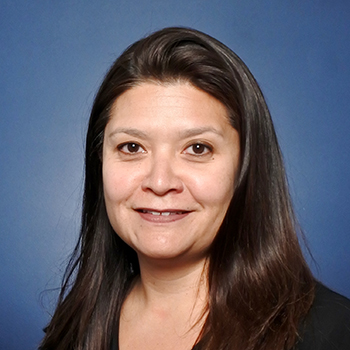
Alia Al-Tayyib, PhD, MSPH
Senior Research Scientist
Dr. Alia Al-Tayyib is an epidemiologist and public health researcher at Denver Health whose work sits at the intersection of infectious diseases, substance use, and vulnerable populations. At Denver Health, she has focused on addressing social, behavioral, and structural determinants of risk and developing interventions to keep people engaged in care.
Since 2007, she has directed the National HIV Behavioral Surveillance (NHBS) system in Colorado. Funded by the Centers for Disease Control and Prevention, NHBS provides essential behavioral context for trends in HIV diagnoses, monitors the impact of prevention efforts, informs policy, and tracks progress toward the national goal of Ending the HIV Epidemic.
Dr. Al-Tayyib also leads research for Denver Health’s Center for Addiction Medicine, where her work focuses on generating, evaluating and integrating evidence into practice to prevent and treat substance use disorders.
Using applied public health and collaborative team science, Dr. Al-Tayyib’s research aims to decrease the spread of infections, lessen the harms associated with substance use and improve the overall health of the communities Denver Health serves. PubMed Citations.
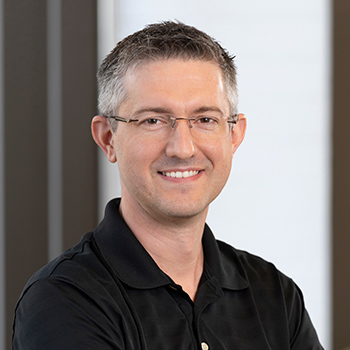
Joshua C. Black, PhD
Senior Statistical Scientist, Rocky Mountain Poison & Drug Safety
Dr. Joshua Black is a statistical scientist at Denver Health’s Rocky Mountain Poison & Drug Safety (RMPDS) whose work tracks national trends in substance use, overdose, and the public health impact of drug policy. He blends large-scale surveillance data, predictive modeling, and targeted surveys to map emerging risks and guide evidence-based interventions.
His research spans high-priority areas including opioid-involved mortality, race-related disparities in naloxone access, and the evolving use of psychedelics. In a 2025 Annals of Emergency Medicine study, Dr. Black and colleagues analyzed “psychedelic tourism”—travel to states with decriminalization or regulated access—highlighting implications for emergency care, harm reduction, and preparedness.
A Pilot Study Grant Program (PSGP) awardee, Dr. Black exemplifies Denver Health’s learning health system model: turning data into action for clinicians, health systems, and public health partners. His work informs policy and resource allocation in Colorado and across the U.S. with a consistent focus on reducing preventable harm for people too often left out of traditional care.
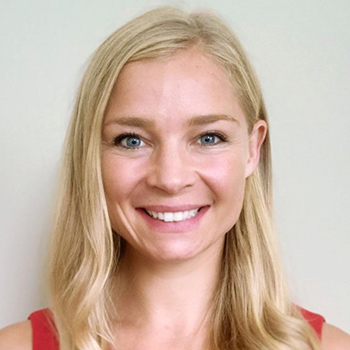
Zoe Bouchelle, MD
Chair of Inpatient Pediatrics
Dr. Zoe Bouchelle is a pediatric hospitalist and health services researcher whose work centers on addressing families’ social and economic needs to advance child health equity. At Denver Health, she is engaged in clinic-connected interventions that help all children thrive, linking research to care in a safety-net learning health system.
At the health system level her recent projects include an Inpatient Food Pharmacy program that provides home-delivered prepared meals and produce to families after a child’s hospitalization—demonstrating strong enrollment, acceptability, and feasibility for scaling within routine care. She also led a pilot randomized trial of unconditional cash transfers for caregivers of preterm infants, testing the feasibility of income support as an upstream child-health intervention.
More broadly, Dr. Bouchelle studies how policies such as tax credits and child development accounts can better support families. She holds a master’s in health policy research from the University of Pennsylvania and trained at Harvard Medical School and the Children’s Hospital of Philadelphia, where she also served as chief resident. Her current work is supported by the Agency for Healthcare Research and Quality (AHRQ).
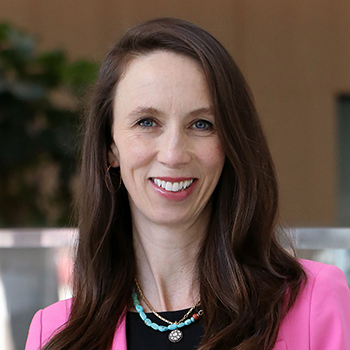
Honora Quinn Burnett, MD, MScPPM
Pediatrician, school-based health and virtual care
Dr. Honora Quinn Burnett is a pediatrician at Denver Health whose work centers on advancing equity in maternal and child health. Her research focuses on connecting perinatal women experiencing poverty with critical policy-driven benefits, particularly paid family leave, and on expanding access to care for children in schools. As a Denver Health Pilot Grant Study Program recipient, she uses qualitative and quantitative methods to better understand barriers to essential social supports.
Dr. Burnett also serves as medical director of the Virtual Care Program at Denver Health Pediatrics at Public Schools, which links school nurses with off-site School-Based Health Center providers through real-time video visits, ensuring students in schools without on-campus clinics receive timely, high-quality care without leaving class.
As an assistant professor of pediatrics at the University of Colorado School of Medicine, Dr. Burnett examines how effective policy implementation can improve health outcomes for low-income families. She is lead author of a Pediatrics publication on paid parental leave and two Journal of School Health studies on virtual school-based care.
Her work advances Denver Health’s mission to build equitable, data-driven systems that meet families where they are.

Rachel Everhart, PhD
Director of Research, Data & Analytics, Ambulatory Care Services
Dr. Rachel Everhart directs clinical and operational data management, analysis and reporting for Denver Health’s Ambulatory Care Services. She leads program evaluation and predictive analytics to enhance electronic health records (EHR) systems and support equity-driven care, especially for medically underserved populations.
Her work includes developing an EHR registry to better identify patients experiencing homelessness. This registry captured 30% more individuals than standard methods, improving outreach to female, older, Hispanic/Latinx and Black patients. She also supports Denver Housing to Health, bridging health systems and supportive housing to serve chronically homeless patients with high health care utilization.
As a key architect of Denver Health’s learning health system infrastructure, she builds and tests integrated data systems that feed back into care delivery, operations and policy. This informs clinical decision making for high-risk populations, including transitions from the justice system, mortality surveillance partnerships with public health, and embedding substance use treatment information into EHR workflows. She also implemented engagement tools, using data-driven messaging to increase preventive care access, vaccinations and follow-up.
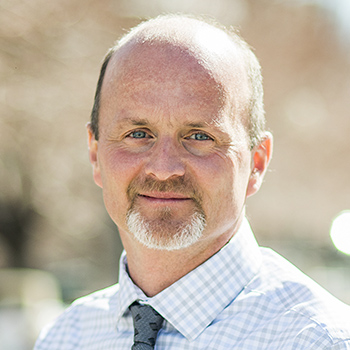
Edward Gardner, MD
Medical Director, Infectious Disease Clinic & Director of HIV Clinical Research
Dr. Edward Gardner leads HIV clinical care and research at Denver Health’s Public Health Institute, serving as Medical Director of the Infectious Disease Clinic and Director of HIV Clinical Research. An infectious disease physician and Associate Professor of Medicine at the University of Colorado, he has shaped Denver’s HIV response through national trials and care innovations that improve engagement in care, adherence to antiretroviral therapy, and viral suppression—particularly in underserved populations.
His research has advanced the HIV care continuum, or “cascade,” a framework he helped develop that is now used worldwide to track and improve outcomes. He has led and contributed to multicenter studies through NIH and NIAID networks, including START, REPRIEVE, and the AIDS Malignancy Consortium’s ANCHOR study, which focus on prevention, treatment, and cancer screening for people with HIV.
Dr. Gardner also leads Denver Health’s participation in the NIH-sponsored RECOVER study, the nation’s largest long COVID initiative, which tracks diverse patients to refine diagnosis, classification, and care strategies for persistent post-COVID symptoms.

Jason Haukoos, MD, MSc
Emergency Physician and Principal Investigator
Dr. Jason Haukoos is an emergency physician and research leader who brings science directly to the bedside. At Denver Health, he integrates clinical trials into real-time patient care—using innovative electronic health record (EHR) tools to embed evidence gathering into the everyday rhythms of emergency medicine.
He co-leads the DETECT Hep C trial, funded by the National Institute on Drug Abuse and published in JAMA. It is the largest study to date of hepatitis C screening strategies in emergency departments. The findings, that routine, universal screening outperforms targeted approaches, reinforce national guidelines and could accelerate public health efforts to eliminate hepatitis C.
Beyond infectious disease, Dr. Haukoos is advancing the emerging field of social emergency medicine, which brings a health equity lens to emergency care. As a leader in the Colorado Social Emergency Medicine Collaborative, he works to ensure that clinical care reflects patients’ lived experiences—connecting research, evaluation, and strategic initiatives to Denver Health’s mission of serving vulnerable populations.

Hany Khattab, M.D., FAAP
Pediatrician, Westside Family Health Center
Dr. Hany Khattab is a general pediatrician at Denver Health and an Assistant Professor of Pediatrics at the University of Colorado School of Medicine. His clinical work spans newborn hospital medicine and primary care for underserved populations, with a focus on integrating evidence-based practices into high-volume safety-net settings. He has also contributed to institutional operations and quality initiatives, including serving as interim medical director of the Westside Pediatric Clinic.
Dr. Khattab’s research examines the biological and behavioral pathways linking early-life stress to adolescent cardiometabolic health. He is a co-investigator on NIH-funded studies exploring stress physiology, prenatal exposures and cardiovascular risk trajectories in youth. His scholarly work includes peer-reviewed publications, national abstracts and presentations at the Pediatric Academic Societies Meeting and the Society for Research in Child Development. He also serves on the DISAPEAR Study Advisory Council, supporting efforts to improve antibiotic stewardship in primary care.
Dr. Khattab is a committed educator and mentor, training pediatric and family medicine residents across newborn and outpatient care settings. His work reflects a dedication to evidence-driven practice and health equity.

Taylor McCormick, MD, MSc
Associate Chair of Emergency Medicine
Dr. Taylor McCormick is the Medical Director of the Pediatric Emergency Department and Urgent Care (PEDUC) at Denver Health and a health services researcher focused on pediatric trauma triage, pediatric airway management, emergency medicine resident education and improving clinical care for children and families in the PEDUC.
Her prior work in pediatric trauma triage showed that incorporating age-adjusted shock index thresholds into trauma team activation criteria improves sensitivity for identifying severely injured children while maintaining acceptable specificity. Dr. McCormick is currently funded by the Agency for Healthcare Research and Quality (AHRQ) to refine pediatric trauma triage criteria to improve outcomes for injured children, and she serves as site principal investigator for the Pediatric Prehospital Airway Resuscitation Trial (Pedi-PART), a multicenter study evaluating prehospital airway strategies in children with respiratory failure.
Dr. McCormick also serves on the Pediatric Advanced Life Support (PALS) Writing Committee, translating research into guidelines for clinical practice.
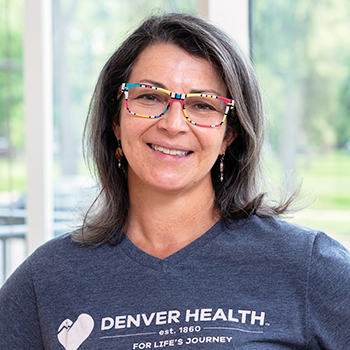
Sonja O’Leary, MD
Chair, General Ambulatory Pediatrics, School and Community Programs
Dr. O’Leary leads general outpatient pediatrics at Denver Health, where she champions equitable, preventive care for children and families across the system’s community, school-based and mobile health centers. Her work centers on integrating research into everyday pediatrics to close health equity gaps and strengthen family-centered care.
She is principal investigator for the Autoimmunity Screening for Kids (ASK) study, conducted in partnership with Denver Health’s Center for Health Systems Research, which screens children at routine visits for early signs of Type 1 diabetes. She contributes to studies such as RELAX and DISAPEAR, which aim to optimize antibiotic prescribing for childhood ear infections, and CARELOOP, a referral model designed to “close the loop” between clinical care and community resources for families in need.
An associate professor of pediatrics at the University of Colorado School of Medicine, she advances models that connect education and health through Denver Health’s School-Based Health Centers and partnerships with local schools. She is committed to cultivating mentorship and academic excellence within her department, supporting clinicians and trainees to grow as educators, researchers and leaders.
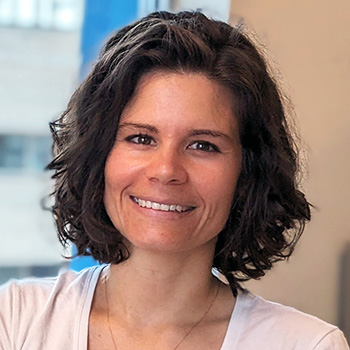
Jessica E. Rast, PhD, MPH
Assistant Statistical Research Scientist, Emergency Department
Dr. Jessica Rast is an epidemiologist and health services researcher whose work focuses on health equity, service systems and outcomes for underserved populations. Her research examines the social and economic factors that shape access to care, hospital utilization and health outcomes across populations. She collaborates with clinical and research teams to design and analyze studies focused on emergency medical systems and acute care delivery.
Her studies have explored disparities in inpatient hospitalizations among autistic adults, psychotropic medication use among children with autism spectrum disorder and the functioning of health and mental health care systems in serving people with disabilities. Her work has appeared in leading peer-reviewed journals, including Autism, Psychiatric Services and Pediatrics.
Dr. Rast applies her expertise in data science and systems analysis to strengthen the emergency department’s research capacity and advance the institution’s learning health system—turning evidence into practice to improve the quality and equity of care for all patients.
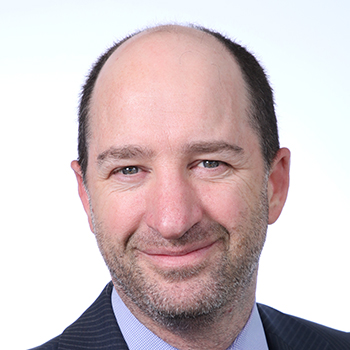
Benjamin A. Steinberg, MD, MHS
Director of Electrophysiology
Dr. Benjamin Steinberg is a cardiac electrophysiologist whose research spans the full spectrum of arrhythmia care. At Denver Health, his work follows a learning health system approach—embedding research into patient care, evaluating interventions in real-world settings and rapidly applying evidence to improve outcomes.
He has led multicenter studies demonstrating the safety and effectiveness of intravenous sotalol for atrial arrhythmias, showing that IV use can shorten hospital stays while maintaining efficacy. His research in cardiac devices includes analyzing defibrillator battery longevity, reporting the first use of a leadless pacemaker after tricuspid valve replacement and advancing the use of wearable and mobile technologies to improve rhythm monitoring.
He also applies artificial intelligence to electrocardiogram (ECG) data, helping identify patients with low ejection fraction and advancing personalized care in atrial fibrillation. His work underscores the importance of outcomes that reflect patient experience and physiology, bridging clinical innovation, technology and data science to improve cardiovascular health.
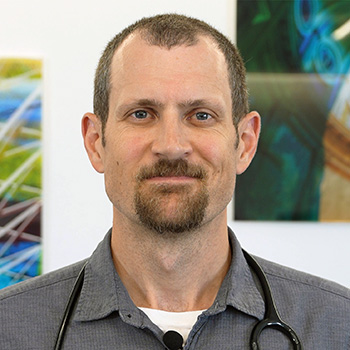
Joshua Williams, MD
Medical Director of Faculty Development
Dr. Joshua Williams is a general pediatrician and health services researcher at Denver Health who studies the safety of vaccines used across the lifespan and explores the social and structural factors that influence vaccine decision-making, particularly in communities historically marginalized by the health system.
Dr. Williams is specifically interested in creative, community-engaged approaches (e.g., digital storytelling) to building trust with families, communicating effectively about vaccines, and advocating for equitable access to them. He has authored more than 80 peer-reviewed publications and received nearly $5 million in federal funding, including support from the Centers for Disease Control and Prevention and the National Institutes of Health.
Dr. Williams is a national leader within the American Academy of Pediatrics’ committee on Pediatric Research in Office Settings, and he also serves as Denver Health’s inaugural Medical Director of Faculty Development in the Office of Education. In this role, he will develop a new line of inquiry centered on academic development within safety-net health systems, with a unique emphasis on the flourishing of Denver Health’s growing academic community and the communities they serve.


